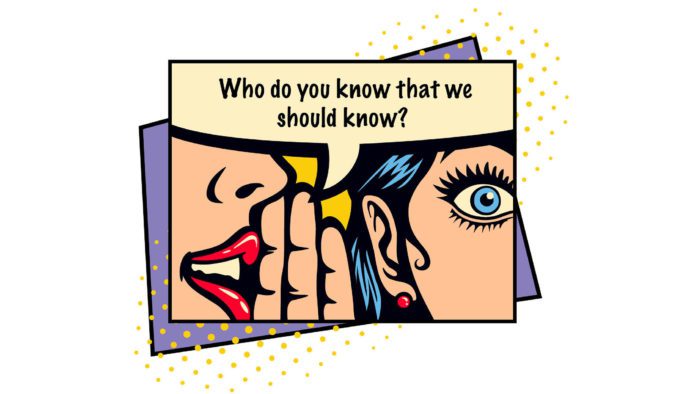Every good small-business owner knows that it pays to have good word-of-mouth marketing. In fact, 78% of people involved in B2B marketing believe that referral programs generate good or excellent leads, and 54% state that referral programs have a lower cost-per-lead than other channels. That’s pretty impressive, but it’s only the tip of the iceberg when it comes to the power of referrals, which can be a powerhouse for business growth if incentivized properly.

So what makes referrals so special when compared with other marketing channels? The answer comes down to one simple word: trust. People trust their family and friends and know that they don’t have the same incentive as a brand to recommend a product. This form of advertising is considered so trustworthy that the 2013 Nielsen Global Trust in Advertising Survey found that a shocking 84% of consumers across 58 countries believed that recommendations from friends and family were the most trustworthy form of advertising. In fact, 28% of millennials won’t even try a product if their friends and family don’t recommend it to them — and that number is likely growing.
So how do you start up a good referral program that brings in high-quality leads? Here are a few things to consider.
Who Are You Trying To Attract?

Not all leads are created equal. If you’re a plumber, you might appreciate your past clients referring you to their friends, but it’s not going to be of much help if those friends aren’t homeowners. You need real potential clients who are in your market and interested in what you have to offer.
One great way to set up your referral program to bring in great leads is to make any incentives conditional. That means you won’t give out any type of reward for a referral until that referral becomes a customer. This is especially helpful if you happen to run a business that relies on customers making a few very large purchases (think contracting, where each job may be worth thousands of dollars). If your business model is more centered around selling multiple goods to a customer over long periods of time, the exposure alone may be enough to offer up an incentive without necessarily needing the lead to convert. It’s all about what works best for your business and what you’re willing to offer.
What Incentives Should You Offer?

One study from the University of Chicago found that non-cash incentives were 24% more effective for boosting referrals than cash incentives. Think about what you offer that could be of value to your customers beyond cold, hard cash. Do you own a bakery? How about offering a free donut for every successful referral? Do you own a garage? Maybe consider offering a free oil change for successful referrals.
No matter what you offer, the important thing to keep in mind is what your customers would find useful. One good way to determine this is by asking for employee and customer feedback. What do they want to see offered? What would make an impact on their willingness to make referrals? Use that feedback to craft your program, and experiment with different incentives from there.
How Can You Keep Your Referral Program Top-of-Mind?

While it’s always important to make sure that you are touching base with your audience frequently, it’s especially important when it comes to launching a successful referral program. It’s a good idea to periodically remind your base through an email or even a flyer that you have a referral program, what you offer through the program, and how they can participate. It might also be worthwhile to remind customers of your program verbally when you complete a transaction with them. This can help keep your program at the forefront of your customers’ minds and, by extension, your business as a whole.
So take some time to set up a referral program that works for your business. Make sure that it results in meaningful referrals, provides appropriate incentives, and is frequently mentioned to your customers. Over time, you may find that such a program is just the thing your business needs to achieve long-term, sustainable growth.






